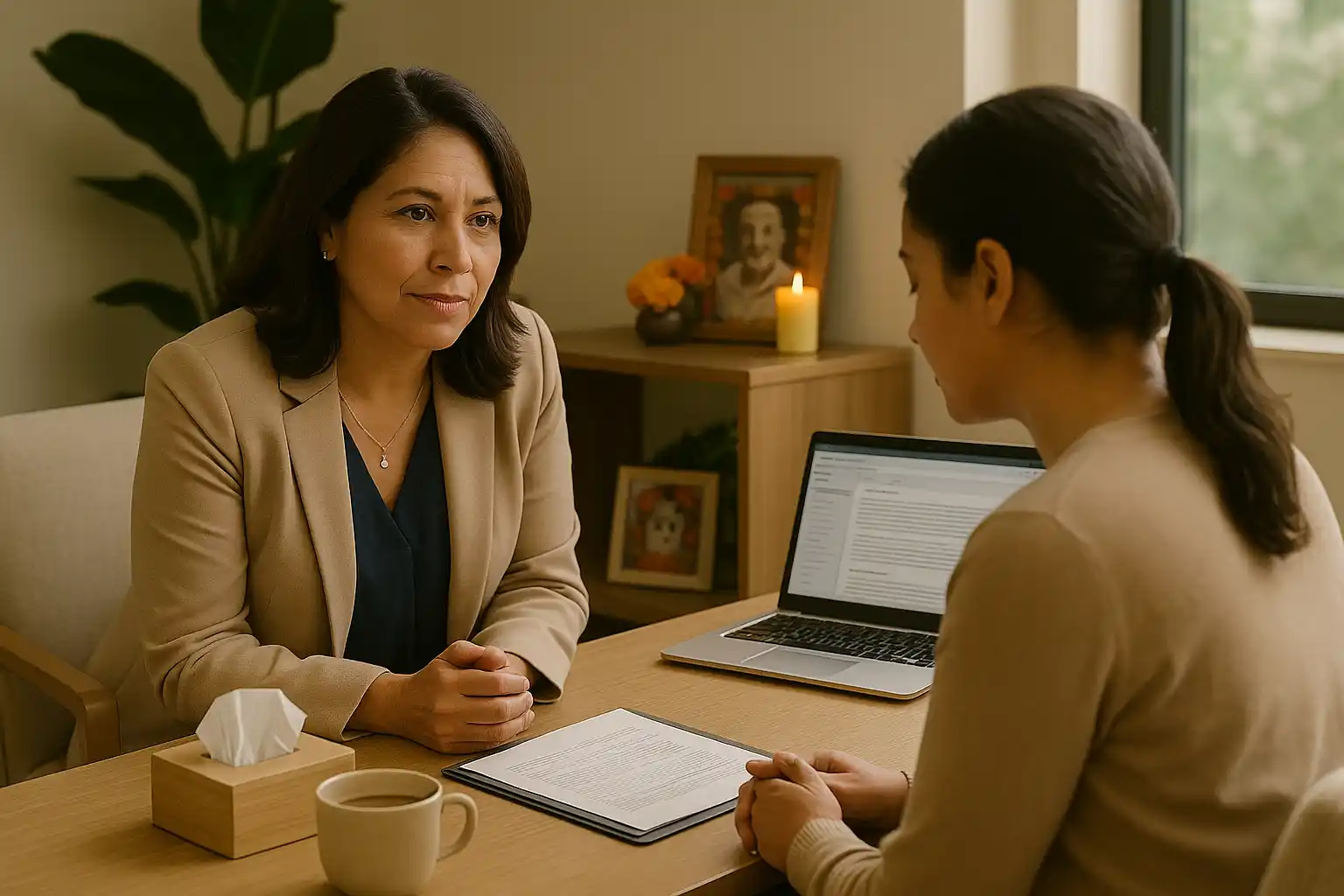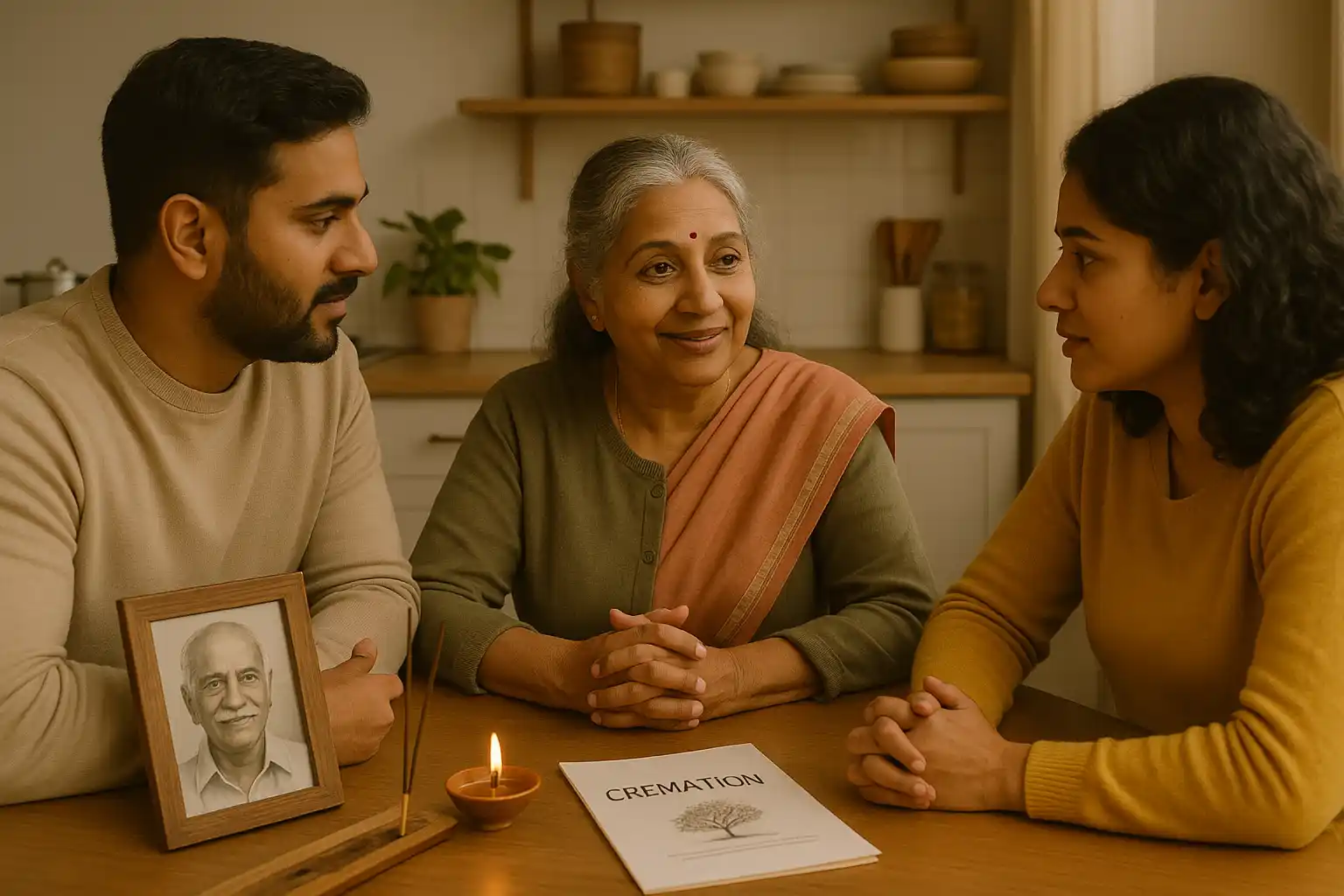The Art of Making a Memoir: A Guide to Preserving Your Legacy Through Writing
In an age where digital memories fade and family stories slip away with each passing generation, the art of documenting our lives has never been more crucial. Jennifer Crosswhite, the accomplished CEO of Tandem Services Inc., joined us on the show this week where we discussed helping individuals preserve their stories for future generations. As an author and professional book coach, Jennifer has helped countless writers through the journey of documenting their personal histories, family stories, and various legacies.

About This Blog
In an age where digital memories fade and family stories slip away with each passing generation, the art of documenting our lives has never been more crucial. Jennifer Crosswhite, the accomplished CEO of Tandem Services Inc., joined us on the show this week where we discussed helping individuals preserve their stories for future generations. As an author and professional book coach, Jennifer has helped countless writers through the journey of documenting their personal histories, family stories, and various legacies.
The conversation around legacy writing often brings up feelings of inadequacy. Many people believe they need perfect grammar, flawless spelling, or a remarkable life story to create something worth sharing. However, the most valuable stories are often found in life's ordinary moments. Through her work, she demonstrates that everyone has a story worth telling, and worth preserving for future generations.
Sharing Everyday Stories
The most precious family histories aren't always about grand adventures or remarkable achievements. The simple details of daily life are just as valuable if not more so. They can paint a vivid picture of how life has changed across generations and provide invaluable context for future family members.
These stories capture personalities, humor, and family dynamics that might otherwise be lost to time. Whether it's a funny saying from grandma or a cherished family recipe, these small details help future generations understand not just what their ancestors did, but who they were as people.
Breaking Down the Writing Barriers
Many potential legacy writers face obstacles preventing them from starting their story. The fear of imperfect grammar, poor spelling, or lack of writing experience can be intimidating. However, you don't always have to write something to record your experiences:
- Voice Recording: Use your smartphone to record stories as you would tell them to a friend
- Transcription Software: Convert spoken words into written text
- Digital Note-Taking: Capture memories as they come to you in simple note form
- Video Documentation: Record visual storytelling sessions with family members
- Grammar and Spelling Tools: Utilize free online resources to polish your writing
Think of legacy writing as having a conversation with future family members. Imagine sitting down with a cup of coffee and simply sharing your experiences, wisdom, and memories. This takes away the pressure of formal writing and allows your voice to come through.
Try to capture the essence of your stories rather than achieving literary perfection. Your family will treasure your authentic voice and personal perspective far more than perfectly structured sentences or flawless grammar.
Digital Legacy vs. Physical Documentation
In today's digital age, many people document their lives through social media. Places like Facebook and Instagram can provide easy ways to capture daily moments, however they come with limitations and risks. Social media platforms are essentially "rented land" – you don't own or control the content you post there and you can never be sure it will stay there long term.
To protect your digital legacy in the long term, regularly download and save important posts, photos, and memories from social media platforms onto your computer. Consider creating backup copies in multiple formats and locations, including both digital and physical storage. This will ensure your stories survive technological changes and platform obsolescence.
While digital tools offer convenience and accessibility, physical books and printed materials provide tangible connections to the past that future generations can hold and experience in a more intimate way.
Publishing Options for Your Legacy
If you were considering writing a whole book, the publishing landscape has evolved significantly, making it easier than ever to transform your stories into professionally printed books. Self-publishing platforms like Amazon and Ingram Spark allow anyone to create and distribute their work without the need for traditional publishing contracts or large print runs.
When considering publishing options, it's important to align your choice with your goals and budget. For some, a simple collection of stories printed for family members might be perfect, while others might want a more polished product with professional editing and design. The key is to choose a path that matches your vision while remaining achievable within your resources.
Professional support can make a significant difference in the quality and impact of your legacy project. Whether working with a book coach, editor, or formatting specialist, professionals can help transform your raw stories into a polished final product that will stand the test of time.
Start Preserving Stories Today
Think about a loved one whose stories you wish you knew better. Perhaps it's a grandparent whose early life remains a mystery or an aunt whose adventures you've only heard about in passing. Now is the time to reach out and start documenting these precious memories before they're lost forever.
Try reaching out to family members to record their stories, or start writing down your own memories for future generations. Every day that passes is another opportunity for stories to fade away. Don't wait for the perfect moment or until you feel more qualified.
Your family's legacy is waiting to be preserved, and you have the power to ensure these stories live on. Whether through written words, recorded conversations, or published books, your efforts to document these memories will become an invaluable gift for generations to come.
Don't leave any pieces of your legacy to chance. As a next step, you can start and develop your plan by downloading the app, My Final Playbook. Through this app, you'll be able to start and learn how to organize your legal, financial, physical, and digital assets today.
In the digital age, planning your legacy is just a click away. Until then, keep your password safe and your playbook up to date.
Related Blog
Duis mi velit, auctor vitae leo a, luctus congue dolor. Nullam at velit quis tortor malesuada ultrices vitae vitae lacus. Curabitur tortor purus, tempor in dignissim eget, convallis in lorem.





Comments